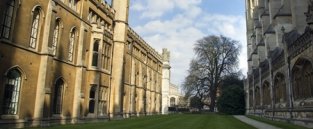Personal Statement Examples
Personal Statements By Subject

Browse our library of over 2,000 UCAS personal statement examples by subject.
International Student Statements

Read UCAS personal statement examples written by international students from around the globe.
Mature Student Personal Statements

A collection of personal statement examples written by mature UCAS students.
Gap Year Personal Statements

Examples for those applying to university that are taking, or have already taken, a gap year.
Postgraduate Personal Statements

Personal statement examples to help those applying for a Postgraduate course.

